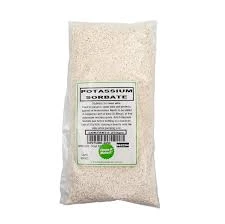
emulsifier lecithin
Understanding Emulsifier Lecithin Its Role, Benefits, and Applications
Lecithin is a naturally occurring emulsifier that plays a pivotal role in the food industry and various other sectors. Derived primarily from soybeans, sunflower seeds, egg yolks, and certain animal tissues, lecithin consists of phospholipids, which are essential fats that form the structural component of cell membranes. This article delves into what lecithin is, its benefits, and its diverse applications.
What is Lecithin?
Lecithin is characterized as a complex mixture of fats, primarily phosphatidylcholine, phosphatidylethanolamine, and other phospholipids. As an emulsifier, it helps to blend ingredients that typically do not mix well, such as oil and water. This property makes lecithin a popular choice among food manufacturers and culinary experts alike.
In food products, lecithin is used to maintain texture, enhance mouthfeel, and improve shelf life. Often listed on ingredient labels simply as lecithin, it can come from various sources, with soy and sunflower being the most common. The source of lecithin can influence its flavor, color, and functionality.
The Benefits of Lecithin
1. Natural Emulsification Lecithin’s primary function as an emulsifier allows for the seamless blending of fats and liquids. This property is crucial in products like mayonnaise, dressings, and baked goods, where a stable mixture is essential for quality.
2. Health Benefits Lecithin is rich in choline, an essential nutrient that supports liver function, brain health, and metabolism. It is also linked to improved cholesterol levels, as it can help reduce the amount of LDL (bad) cholesterol while potentially increasing HDL (good) cholesterol.
3. Food Preservation By improving the texture and stability of food products, lecithin can contribute to a longer shelf life. This is particularly important for processed foods that require extended storage times without losing quality.
4. Functional Texture In baked goods, lecithin can enhance moisture retention and improve crumb structure. This results in lighter, airier textures in cakes, pastries, and bread, appealing to consumers seeking high-quality baked products.
emulsifier lecithin

5. Dietary Supplement Beyond its role in food, lecithin is also available in supplement form. Many health-conscious individuals incorporate lecithin into their diets for its potential cognitive and cardiovascular benefits.
Applications of Lecithin
Lecithin's versatility extends beyond the kitchen. It is used in a multitude of industries, including
- Cosmetics In the beauty industry, lecithin serves as an emulsifier and moisturizer, helping to blend oils and water in creams and lotions. Its skin-friendly properties make it a popular ingredient in various cosmetic formulations.
- Pharmaceuticals Lecithin is utilized in drug formulations, particularly in the creation of liposomes, which are tiny vesicles that can deliver medications directly to cells. This enhances the bioavailability of certain drugs.
- Nutraceuticals As a supplement, lecithin is often marketed for its potential health benefits, including support for cognitive function and cardiovascular health.
- Animal Feed Lecithin is added to livestock feed to enhance nutrient absorption and improve the overall health of the animals.
Conclusion
Lecithin is a remarkable emulsifier with a wide range of applications across different industries. Its ability to stabilize mixtures, contribute to improved textures in food, and provide health benefits makes it a valuable ingredient. Whether enjoyed in a delicious salad dressing or applied in a skincare product, lecithin demonstrates its versatility and importance in our daily lives. As consumers continue to seek natural and functional ingredients, lecithin’s role is likely to expand, further solidifying its place in both the culinary world and beyond.
-
The Safety Challenges of Ammonium Nitrate FertilizerNewsJun.26,2025
-
The Critical Role of Mining ChemicalsNewsJun.26,2025
-
Shelf Life of Glacial Acetic Acid Food GradeNewsJun.26,2025
-
Enhancing PVC Longevity with 1,2,3-Benzotriazole InnovationsNewsJun.26,2025
-
China’s Dominance in Food Additive ProductionNewsJun.26,2025
-
Can Aluminum Hydroxide Replace More Toxic Alternatives?NewsJun.26,2025
-
PE and PP Plastics with Benzotriazole AdditivesNewsJun.12,2025
Hebei Tenger Chemical Technology Co., Ltd. focuses on the chemical industry and is committed to the export service of chemical raw materials.
-

view more DiethanolisopropanolamineIn the ever-growing field of chemical solutions, diethanolisopropanolamine (DEIPA) stands out as a versatile and important compound. Due to its unique chemical structure and properties, DEIPA is of interest to various industries including construction, personal care, and agriculture. -

view more TriisopropanolamineTriisopropanolamine (TIPA) alkanol amine substance, is a kind of alcohol amine compound with amino and alcohol hydroxyl, and because of its molecules contains both amino and hydroxyl. -

view more Tetramethyl Thiuram DisulfideTetramethyl thiuram disulfide, also known as TMTD, is a white to light-yellow powder with a distinct sulfur-like odor. It is soluble in organic solvents such as benzene, acetone, and ethyl acetate, making it highly versatile for use in different formulations. TMTD is known for its excellent vulcanization acceleration properties, which makes it a key ingredient in the production of rubber products. Additionally, it acts as an effective fungicide and bactericide, making it valuable in agricultural applications. Its high purity and stability ensure consistent performance, making it a preferred choice for manufacturers across various industries.











